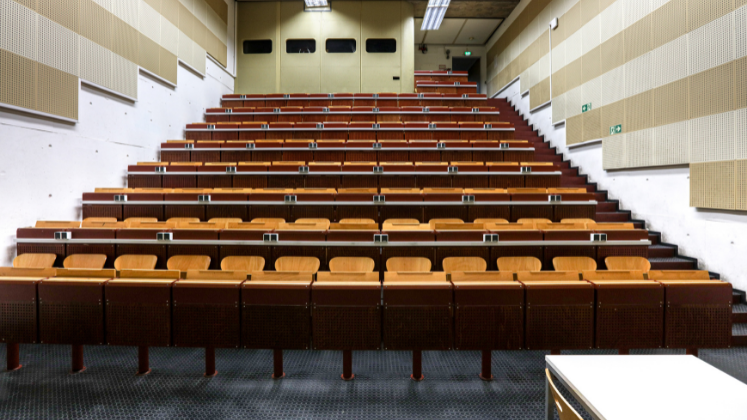Covid-19 ushered in a shift in research priorities pivoting researchers’ energies away from on-going projects. Presenting evidence from a new analysis of business, management and economics scholars, James Walker, Chris Brewster, Rita Fontinha, Washika Haak-Shaheem, Stefano Benigni, Fabio Lamperti and Dalila Ribaudo examine which researchers have been most affected by this shift, how it has impacted different types of university and what policies may be required to remediate the disruption to normal research patterns.
The Covid-19 pandemic began as a healthcare emergency, but it rapidly became clear that it would have substantial political, economic, and social consequences. It confronted the world with an unexpected and far-reaching global crisis and led to the development of ‘Covid-related’ literatures, whereby a number of grant-awarding bodies swiftly put in place ‘rapid response’ calls to fund work aimed at addressing and mitigating the effects of the pandemic. In addition, existing grant holders were invited to pivot their work to Covid-19 projects and away from the projects they were currently investigating.
While these shifts are a natural response to the research imperative of providing substantive help with the issues raised by the pandemic, a number of voices have pointed out that shifting the research and funding agenda too far towards pandemic-related issues may undermine the capacity of researchers to examine other relevant issues that they would like to contribute to. For example, Nobel Prize-winning physician Peter Ratcliffe argued that scholars should maintain their focus on the issues they are motivated by, rather than singular problems such as the pandemic, since not doing so may undermine future work.
40% of our sample of over 1500 business, management and economics researchers, agreed that the pandemic had impaired their confidence in applying for non-pandemic-related grants and ‘crowded out’ other projects
These views suggest that the pandemic has the potential to ‘crowd out’ other projects that researchers wish to contribute to and may undermine confidence in applying for non-pandemic-related grants by influencing their perceptions of likely grant success. Our recent work examines the extent to which researchers considered that the pandemic has ‘crowded out’ other projects along two dimensions. First that the focus on Covid has undermined their confidence in applying for non-pandemic grants and second that the pandemic shifted research efforts away from other areas they would previously have aimed to have contributed to. Indeed, 40% of our sample of over 1500 business, management and economics researchers, agreed that the pandemic had impaired their confidence in applying for non-pandemic-related grants and ‘crowded out’ other projects.
Our results indicated grant funding was influential for two significant groups at different ends of the career spectrum – senior scholars who had a track record for work that has high impact upon the economy and society and early career researchers.
Experienced researchers typically have made a significant ‘sunk cost’ investment in establishing their projects, with their status being aligned to their body of work, and would therefore perceive it to be more risky to alter their agenda and thus are more sensitive to shifts in the funding landscape. Those whose work contributes to addressing economic and societal issues, including grand challenges not related to the pandemic, also felt it had impacted their research.
At the other end of the career spectrum, ECRs, who have a smaller portfolio of projects, which could be related to or pivoted toward pandemic related issues, in turn were more likely to be affected. However, for some grant funding can bestow considerable benefits aiding in promotion, ability to receive outside employment offers, and to enhance both future scholarly impact and grant success. Given that less fortunate early career researchers were being put off applying for other non-Covid funding, this raises serious questions about the further destabilisation of their careers and the wider research career pipeline.
funding agencies and policymakers may need to take remedial steps to ‘reboot’ non-pandemic related research by ECRs by providing targeted grants schemes aimed at these groups
While the effects on individuals were unequal, we also found that scholars working in ‘new’ (post-1992) universities, that have traditionally been less research intensive, less successful in grant applications and more focused on teaching and local industry, appeared more detrimentally affected than those at older institutions. A historical strength of the UK academy is its depth, with excellent research being conducted at most UK universities. There is therefore a risk that grant applications and the research culture in the ‘new’ universities is further constrained and the gap between them and the traditional universities widens.
Finally, we also found that the pandemic shifted research efforts away from other research areas they would like to contribute to, with those who had been involved in identifiably substantial social impact work being more likely to consider non-pandemic work negatively affected. This underscores the need for funders, policymakers and academic institutions to provide support through targeted funding via grant providers or through internal funding by universities themselves.
These findings have wider ramifications for research funders, as they indicate how radical shifts in research agendas, may lead to capable scholars being disenfranchised. If that is indeed the case, a more incremental and well-publicised change that engages with the research community may be beneficial to all parties.
From the policy perspective, one implication of these findings is that funding agencies and policymakers may need to take remedial steps to ‘reboot’ non-pandemic related research by ECRs by providing targeted grants schemes aimed at these groups. Failing to do so may not only build-in future challenges for early career researchers, but also weaken future research development. This may be ameliorated by the redirection of resources, for example, providing greater numbers of ECR grants.
This post is based on the author’s co-authored article, The unintended consequences of the pandemic on non-pandemic research activities, published in Research Policy.
The content generated on this blog is for information purposes only. This Article gives the views and opinions of the authors and does not reflect the views and opinions of the Impact of Social Science blog (the blog), nor of the London School of Economics and Political Science. Please review our comments policy if you have any concerns on posting a comment below.
Image Credit: Adapted from Paligrafics via Pixabay.








